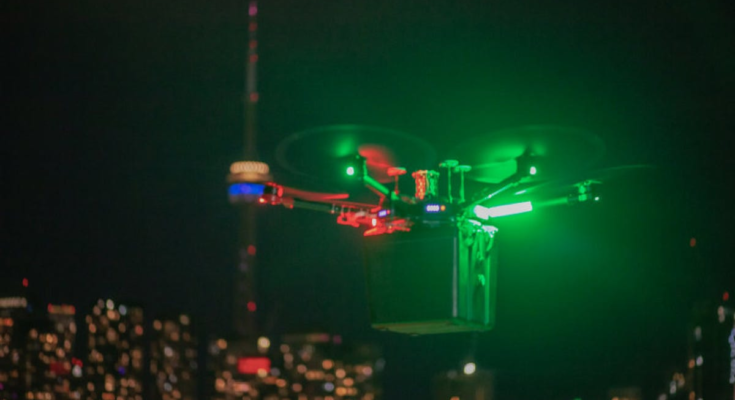
It took just six minutes, but the successful flight from Toronto Western Hospital to Toronto General Hospital demonstrated the efficacy of using drones to quickly and safely transport lungs for transplantation.
Alain Hodak, a 63-year-old engineer, is the first person in history to receive a pair of lungs from a delivery drone. The shipment happened in Toronto on September 25th, as the drone landed on the roof of Toronto General Hospital at around 1:00 a.m. local time, as the Canadian Press reports via the CBC.
Shaf Keshavjee, the surgeon-in-chief with Canada’s University Health Network and a professor at the University of Toronto, was there to receive and inspect the precious package.

“To see it come over the tall buildings was a very exciting moment,” he told reporters. “I certainly did breathe a sigh of relief, when it landed and I was able to…see that everything was okay.”
G/O Media may get a commission
That everything was okay was no accident. The drone flight from Toronto Western Hospital took just six minutes, but it took 18 months of planning and preparation to pull off. Engineers at Unither Bioélectronique had to develop a lightweight shipping container capable of tolerating vibrations and abrupt changes in elevation and air pressure, among other environmental stresses. The team practiced with dummy packages, performed drop tests, and fitted the carbon fiber container with an emergency parachute and GPS system.

Drones have transported transplant organs before, including kidneys, corneas, and a pancreas, but lungs presented an added challenge. As the Canadian Press reports, some 80% of donated lungs cannot be used owing to problems having to do with insufficient oxygenation or a failure to meet minimal functional standards. And like any transplanted organ, time is of the essence; the quicker an organ can be brought to the patient, the better. Hence the desire to ship organs through the air, rather than through congested city traffic.
Martine Rothblatt, CEO of United Therapeutics, the parent company of Quebec-based Unither Bioélectronique, chose Toronto General Hospital because it was the first hospital to perform a lung transplant (1983) and double lung transplant (1986). The millionaire founder of SiriusXM Satellite Radio said she “felt that the karma of the universe would be right if the first-ever drone transplant was also done at Toronto General Hospital.”

With this first successful delivery now done, United Therapeutics can look ahead to bigger and bolder accomplishments. The company would like to extend the range of its propriety drones and build units capable of flying 100 miles (160 km) and then 200 miles (320 km). Ultimately, United Therapeutics would like to deliver lungs, hearts, and kidneys across all of North America. Other companies working in this space include U.S. companies AD Airlines and AlarisPro Transport and China’s EHang.
More: Third Moderna shot boosts transplant recipients’ immune response.



